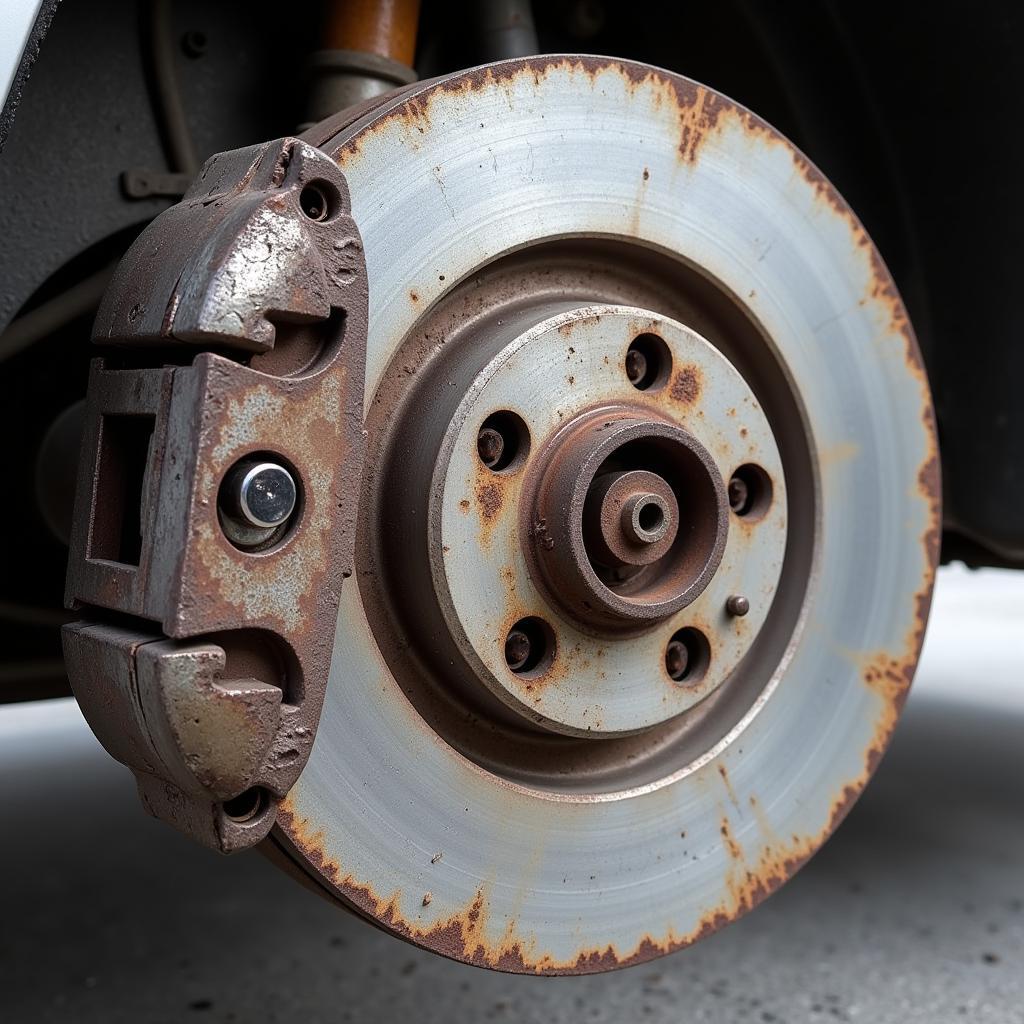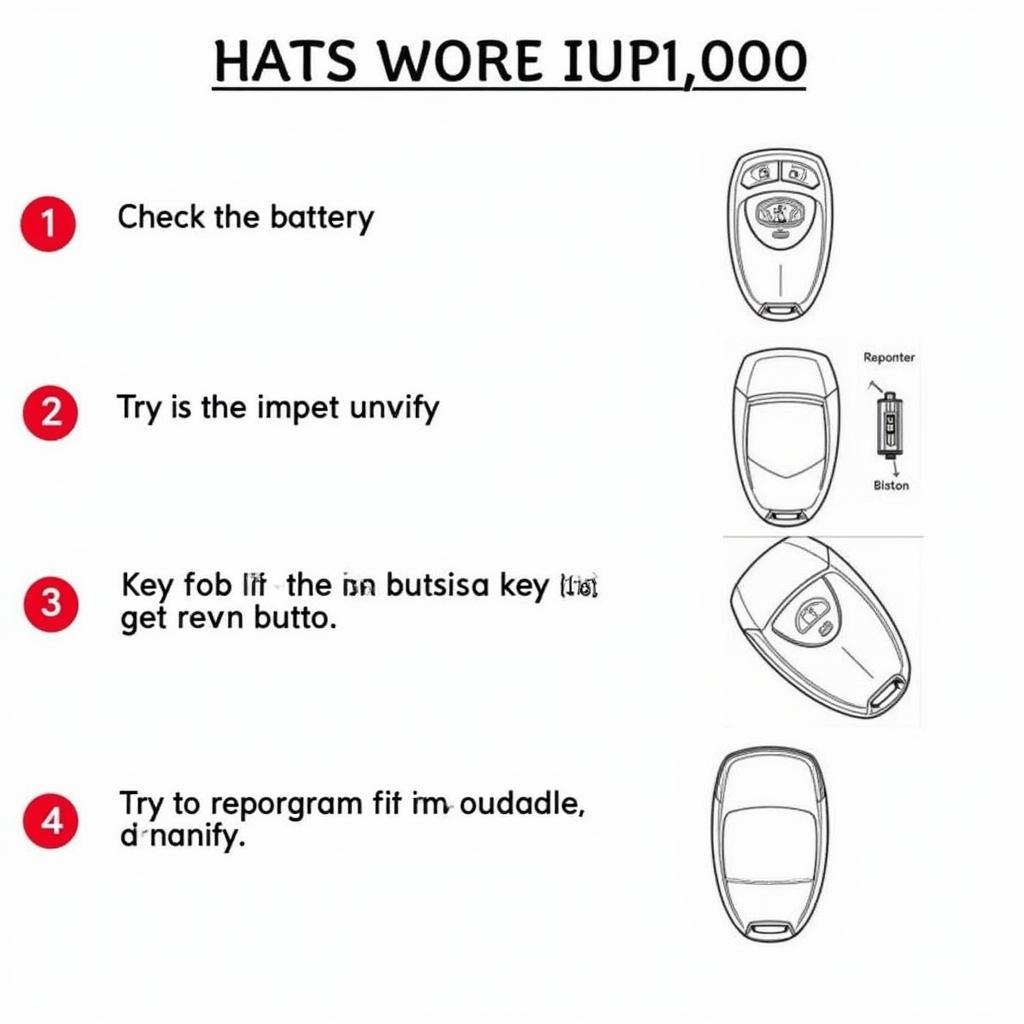The dreaded Passat brake pad warning light. It can illuminate your dashboard, triggering a wave of anxiety. Understanding why this light comes on, what it means, and how to address it is crucial for maintaining your Volkswagen Passat’s safety and performance. This guide provides a comprehensive overview of the Passat brake pad warning light, covering everything from diagnosis to potential solutions.
Understanding Your Passat’s Brake Pad Warning Light
The brake pad warning light is part of your Passat’s sophisticated safety system. It’s designed to alert you when your brake pads are nearing the end of their lifespan and require replacement. Ignoring this warning can lead to compromised braking performance, potentially resulting in dangerous driving situations. This light is often accompanied by a squealing or grinding sound, further indicating worn brake pads. However, the light can also indicate other issues within the braking system, such as a faulty sensor or low brake fluid.
Similar to 2008 passat brake pad warning light, the illumination of this light doesn’t always mean immediate danger, but it necessitates prompt attention.
Why is My Passat Brake Pad Warning Light On?
There are several reasons why your Passat brake pad warning light might illuminate. The most common reason is worn brake pads. Over time, the friction material on the brake pads wears down, eventually triggering the warning light. However, other potential culprits include a malfunctioning brake pad wear sensor, low brake fluid levels, or issues with the ABS (Anti-lock Braking System). Diagnosing the precise cause is essential for effective repair.
 Worn Brake Pads on a Volkswagen Passat
Worn Brake Pads on a Volkswagen Passat
Diagnosing the Problem
Determining the root cause of the warning light requires a systematic approach. Begin by visually inspecting your brake pads. If they appear thin or the wear indicator is touching the rotor, replacement is likely necessary. Next, check your brake fluid level. Low brake fluid can also trigger the warning light and indicates a potential leak in the system. Finally, if you’re unsure, consult a qualified mechanic specializing in Volkswagen vehicles. They can diagnose the issue using specialized diagnostic tools.
How to Check Brake Pad Thickness
Checking brake pad thickness is a relatively simple process. You’ll need to remove the wheel to access the brake caliper and pads. Use a flashlight and a ruler or caliper to measure the thickness of the friction material. Compare this measurement to the manufacturer’s specifications for your specific Passat model. If the thickness is below the recommended limit, replacement is necessary.
Solutions and Repairs
Once you’ve identified the cause of the warning light, you can proceed with the appropriate repair. If your brake pads are worn, replace them with high-quality replacements designed for your Passat model year. If the issue is a faulty sensor, replace the sensor. If low brake fluid is the culprit, top off the fluid and inspect the system for leaks. For more complex issues, such as ABS problems, consult a qualified mechanic.
For information on resetting the warning light, you can refer to this guide: passat brake pad warning light reset. Remember, addressing this issue promptly is crucial for safe driving.
Choosing the Right Brake Pads
Selecting the correct brake pads for your Passat is essential for optimal braking performance. Consider factors such as driving style, climate, and budget. Consult your owner’s manual or a reputable parts supplier for recommendations specific to your Passat model.
This shares similarities with 2003 passat brake pad warning light in terms of the importance of choosing the right components for your vehicle’s year.
Conclusion
The Passat brake pad warning light serves as a critical safety reminder. Understanding its significance and addressing the underlying issue promptly is paramount for maintaining your vehicle’s safety and performance. By following the diagnostic and repair steps outlined in this guide, you can ensure your Passat’s brakes remain in optimal condition. Don’t ignore the warning light – address it today for peace of mind on the road.
FAQ
-
How often should I check my Passat’s brake pads? It’s recommended to visually inspect your brake pads every 10,000-12,000 miles or sooner if you hear unusual noises.
-
Can I drive with the brake pad warning light on? While you might be able to drive for a short distance, it’s strongly advised against it. Continued driving with worn brake pads can damage your rotors and compromise braking performance.
-
How much does it cost to replace Passat brake pads? The cost varies depending on your location, the specific Passat model, and the type of brake pads chosen.
-
What is a brake pad wear sensor? It’s a small wire embedded in the brake pad material. When the pad wears down to a certain level, the sensor contacts the rotor, triggering the warning light. You might find this helpful if your light won’t turn off: vw passat brake pad warning light won& 39.
-
Can I replace my Passat’s brake pads myself? If you have mechanical experience, it’s possible. However, if you’re unsure, consult a qualified mechanic. Similar to the 2003 vw passat brake pad warning light, the procedure may require specialized tools.
-
What happens if I ignore the brake pad warning light? Ignoring the warning can lead to severe damage to your braking system, including worn rotors and potentially brake failure.
-
Why is my Passat brake pad warning light flashing? A flashing light often indicates a more serious issue with the ABS system and requires immediate attention from a qualified mechanic.

